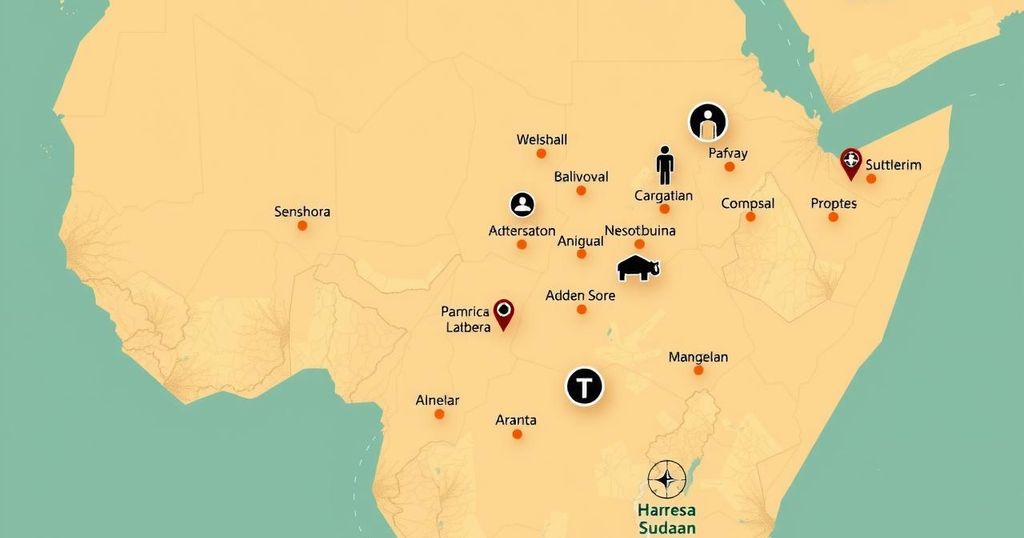In February 2025, humanitarian efforts in South Sudan faced 25 access challenges, including armed hostilities, bureaucratic barriers, and violence against aid personnel. Clashes in Nasir County disrupted services and resulted in staff relocations, while armed incursions and bureaucratic fees hindered supply deliveries across several states. Urgent action is required to improve access and facilitate essential aid.
In February 2025, humanitarian partners in South Sudan encountered 25 access challenges, encompassing active hostilities among armed factions, bureaucratic hurdles, and violence against humanitarian staff and facilities. These challenges impede the provision of critical services, particularly with the rainy season imminent, which necessitates the prepositioning of essential supplies to maintain service continuity when roads become inaccessible.
In Nasir County, Upper Nile State, clashes between a militia and the South Sudan People’s Defense Forces (SSPDF) led to significant consequences including displacement, loss of life, destruction of property, and interruption of humanitarian services. Notably, February witnessed the relocation of 23 humanitarian personnel from areas such as Nasir, Mandeng, Jikmir, and Ulang due to escalating violence.
Humanitarian personnel and assets have been under attack in Jonglei, Central Equatoria, and Western Equatoria. Aid workers reported ambushes, attacks, intrusions, looting, and armed robberies. In Jonglei State, armed youths from the Greater Pibor Administrative Area (GPAA) murdered two security guards at an OXFAM warehouse in Motot and looted food supplies. Additionally, two separate shooting incidents on February 26 and 27 targeted a humanitarian convoy and a UN contractor, underscoring the heightened risks of road travel. On February 12, armed individuals suspected to be SSPDF delayed humanitarian supplies by detaining a contracted boat at a river checkpoint in Canal.
Bureaucratic obstacles are also prevalent in Renk County, Upper Nile State. An international non-governmental organization (INGO) was asked to pay a US$1,500 registration fee by labor officers, indicative of ongoing irregular levies that impose financial and administrative burdens on aid agencies. Similarly, security forces in Aweil East County restricted vehicular movement on February 14, preventing an INGO team from reaching Wedwel. Continuing bureaucratic challenges and escalating security issues further obstruct humanitarian efforts, causing delays in delivering essential aid to vulnerable populations.
In summary, humanitarian access in South Sudan is severely compromised due to a combination of violence, bureaucratic challenges, and impending seasonal constraints. As armed conflicts continue to evolve in regions like Nasir and Jonglei, humanitarian organizations face increased risks to personnel and supplies. Addressing both security and bureaucratic issues is paramount to ensuring that aid reaches those in critical need.
Original Source: www.unocha.org






